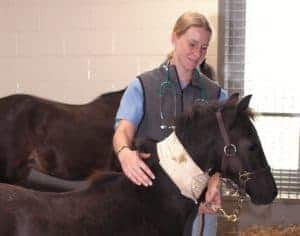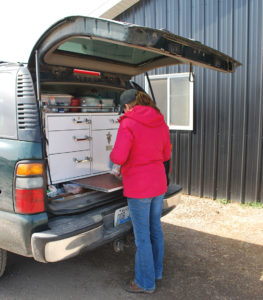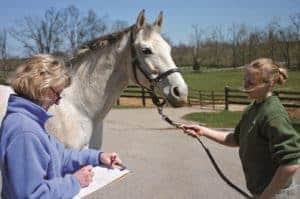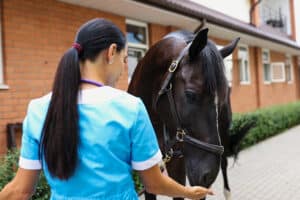Study Shows Some Vet Students Misinterpret Horse Behavior

The veterinarian’s traditional role is to safeguard a horse’s physical health. But that might be a limited way of looking at things. Researchers in New Zealand have revealed that a more “holistic” approach—including a good understanding of horse behavior—would lead to better recognition of welfare issues as well as improved safety for the veterinarian.
A new study, though, has shown that some veterinary students misinterpret equine behavior. In fact, some even perceive a horse’s emotional state as the exact opposite of what it really is.
Such misinterpretations—believing a horse is “happy” when in fact he’s isolated and depressed, for example—could mean these future professionals could miss signs of poor welfare. And they could also be putting themselves at risk of injury if they perceive an agitated horse as “playful,” for example, said Gabriella Gronqvist, PhD, MSc, the study’s lead author and a former postdoctoral fellow at Massey University’s Institute of Vet, Animal, and Biomedical Sciences
Create a free account with TheHorse.com to view this content.
TheHorse.com is home to thousands of free articles about horse health care. In order to access some of our exclusive free content, you must be signed into TheHorse.com.
Start your free account today!
Already have an account?
and continue reading.

Written by:
Christa Lesté-Lasserre, MA
Related Articles
Stay on top of the most recent Horse Health news with



















